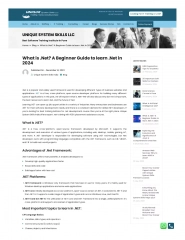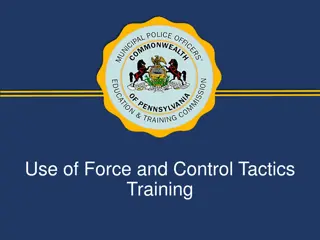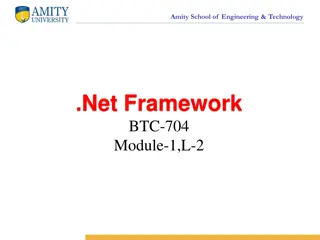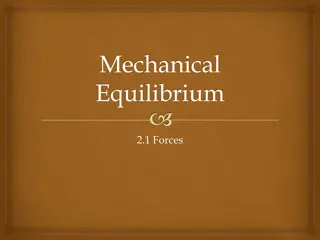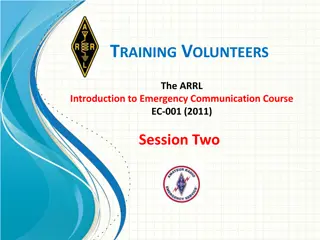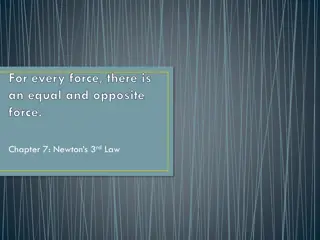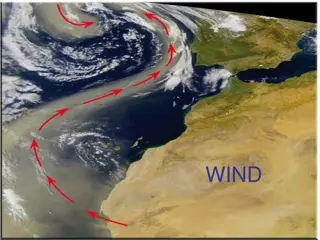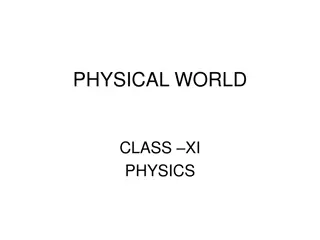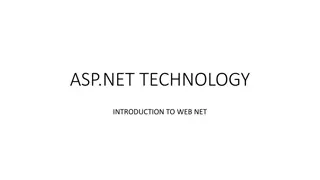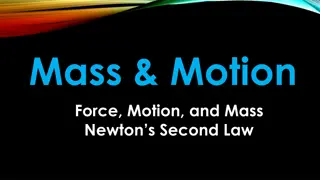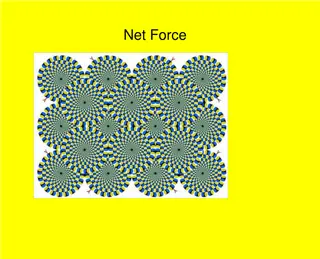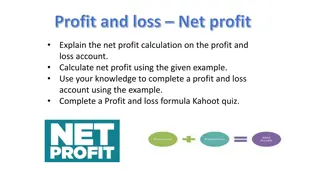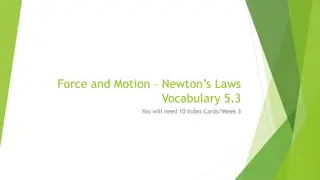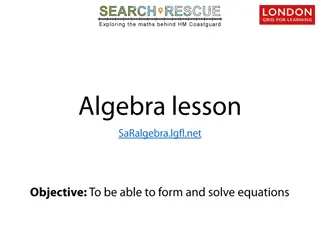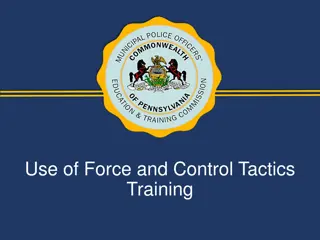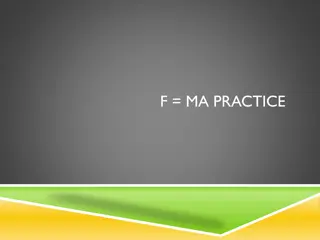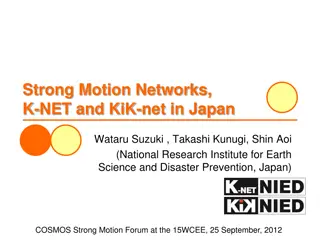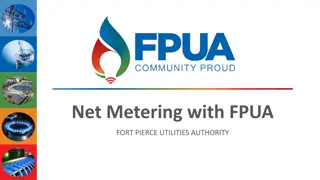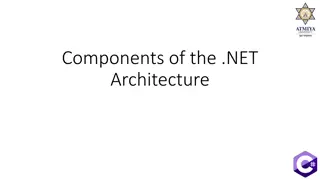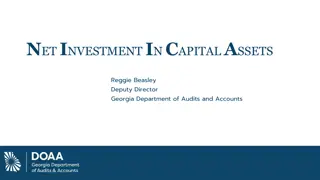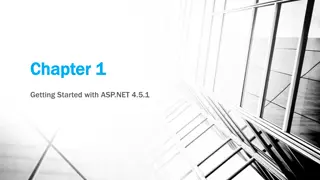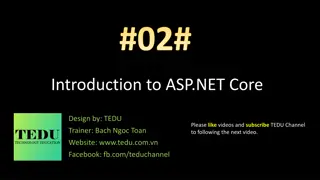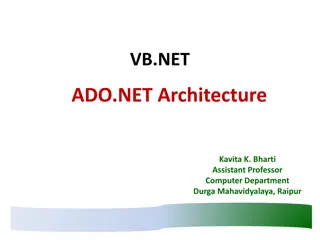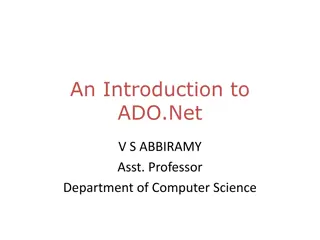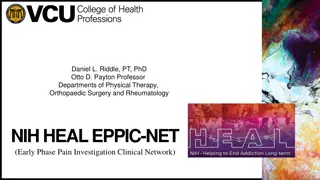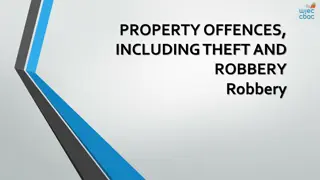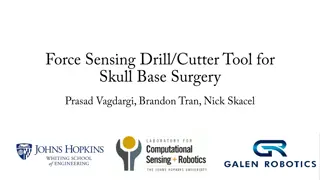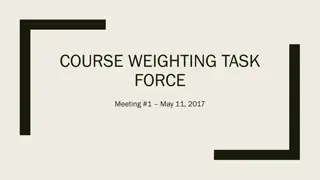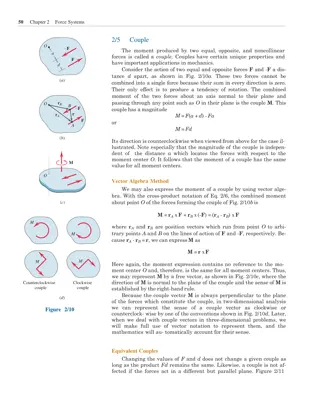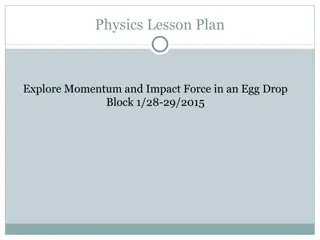Force Tractors_ Empowering Indian Farmers
Force tractors, including the strong Force Balwan and adaptable Force Orchard models, are true workhorses intended to meet the diverse requirements of Indian farmers. With a legacy of more than two decades, Force tractors have become inseparable from reliability, sturdiness, and performance.\n
2 views • 2 slides
www-systemskills-in-what-is-net-a-beginner-guide-to-learn-net-in-2024- (2)
.NET is a free, cross-platform, open-source framework developed by Microsoft. It supports the development and execution of various types of applications, including web, desktop, mobile, gaming, IoT, and more. A .NET developer is responsible for developing software using .NET technologies.
3 views • 2 slides
www-systemskills-in-what-is-net-a-beginner-guide-to-learn-net-in-2024- (2)
.NET is a free, cross-platform, open-source framework developed by Microsoft. It supports the development and execution of various types of applications, including web, desktop, mobile, gaming, IoT, and more. A .NET developer is responsible for developing software using .NET technologies.
0 views • 2 slides
Uniform Statewide Deadly Force Policy in Indiana Law Enforcement Training
The Indiana Law Enforcement Training Board has established a consistent and uniform statewide deadly force policy to ensure public safety and promote equity. This policy prohibits modification by any law enforcement agency and emphasizes the sanctity of human life. Officers are required to follow es
0 views • 53 slides
Understanding Concepts of National Income in Economics
Explore the concepts of national income presented by Dr. Rashmi Pandey, covering key indicators such as Gross National Product (GNP), Gross Domestic Product (GDP), Net National Product (NNP), Net Domestic Product (NDP), Personal Income, Disposable Income, Per Capita Income, and Real Income. Gain ins
0 views • 22 slides
Comprehensive Training on Use of Force and Control Tactics
This comprehensive training focuses on legal concepts, civil liability, critical decision-making, de-escalation techniques, and sound control tactics in relation to the use of force and control tactics. Emphasis is placed on the sanctity of human life, proportionality (legally and ethically justifie
0 views • 42 slides
Overview of .NET Framework and CLR Architecture at Amity School of Engineering
Explore the .NET Framework and Common Language Runtime (CLR) architecture at Amity School of Engineering & Technology, covering topics such as .NET components, technical architecture, common language runtime, CLR execution model, and more. Discover the support for multiple languages and the .NET lan
0 views • 28 slides
Understanding Mechanical Equilibrium and Net Force
An exploration of mechanical equilibrium, forces, and net force in physics. Discover how objects in balance exhibit stability and require external forces to change their state of motion. Learn about the concept of tension, weight, and the significance of net force in determining the motion of object
0 views • 19 slides
Emergency Communication Volunteer Training Overview
Introduction to Emergency Communication course covers a wide range of topics including net operations, net types, example net formats, net missions, and more. Participants will learn about the importance of structured communication networks during emergencies and disaster situations. The training em
1 views • 15 slides
Understanding Newton's Third Law of Motion
Chapter 7 delves into Newton's Third Law, stating that every force has an equal and opposite force. The law describes the relationship between forces in an interaction - one force being the action force and the other the reaction force. These forces are equal in strength, opposite in direction, and
0 views • 9 slides
Forces Affecting Air Movement: Pressure Gradient Force and Coriolis Force
The pressure gradient force (PGF) causes air to move from high pressure to low pressure, with characteristics including direction from high to low, perpendicular to isobars, and strength proportional to isobar spacing. The Coriolis force influences wind direction due to the Earth's rotation, making
0 views • 20 slides
Exploring Fundamental Forces in Nature: A Physics Perspective
Physics, the study of nature and its laws, explores fundamental forces governing the natural world. Gravitational force, electromagnetic force, strong nuclear force, and weak nuclear force play crucial roles in interactions at atomic and cosmic levels. Understanding these forces is essential for com
1 views • 6 slides
Understanding VB.NET: Features, Advantages, and Disadvantages
VB.NET is a popular object-oriented programming language developed by Microsoft as a successor to Visual Basic 6. It offers features like object-oriented programming, automatic code formatting, multithreading, and event management. Despite its advantages in code formatting and ease of web applicatio
2 views • 8 slides
Understanding Mass, Motion, and Force According to Newton's Second Law
Explore the relationship between mass, motion, and force through Newton's Second Law. Learn how the mass of an object affects the force required to change its motion, illustrated with examples like hitting different balls with the same force and pulling a wagon empty vs. loaded. Dive deeper into the
0 views • 10 slides
Macroeconomic Theory of the Open Economy by Udayan Roy
This presentation discusses key concepts related to the open economy, such as net exports equaling net capital outflow, national saving equaling domestic investment plus net capital outflow, the loanable funds theory of the real interest rate, and the relationship between saving, investment, and net
0 views • 31 slides
Understanding Net Force in Physics
Explore the concept of net force in physics, including balanced and unbalanced forces, the relationship between force and motion, and how net force affects an object's movement. Learn about scenarios where net force is zero, one force acts on an object, multiple forces cancel out, or combine to prod
0 views • 11 slides
Understanding Net Profit Calculation in Profit and Loss Accounts
Net profit, also known as the bottom line, is a crucial indicator of a business's financial performance. It is calculated by deducting total expenses from gross profit. In the provided example for Frying Tonite, the net profit is $30,110 after subtracting expenses of $38,590 from a gross profit of $
0 views • 11 slides
Understanding Newton's Laws of Motion
Explore Newton's Laws of Motion including the concepts of force, inertia, acceleration, action and reaction forces, and the role of mass in determining motion. Newton's First Law states that objects at rest remain at rest unless acted upon by an unbalanced force. Newton's Second Law relates accelera
0 views • 16 slides
Physics Applications: Momentum, Impulse, and Recoil Calculations
Explore various physics scenarios involving momentum, impulse, and recoil in this collection. Calculate the impulse of net force, average net force, recoil velocity of a rifle, and initial speed of a bullet using principles of conservation of momentum. Solve problems related to multi-dimensional imp
0 views • 5 slides
Understanding Forces and Mass
Forces, such as contact and non-contact forces, interact with objects to cause motion or deformation. Mass is the amount of matter in an object, measured in kilograms. Learn about applied force, normal force, frictional force, air resistance, spring force, tensile forces, compressive forces, and she
1 views • 29 slides
Explore sar.lgfl.net Image Collection
Discover a collection of images related to sar.lgfl.net, showcasing various slides and visuals. Each image has a width of 900px and provides a glimpse into different aspects of sar.lgfl.net. Dive into this visual journey to learn more about sar.lgfl.net's offerings and features.
0 views • 12 slides
Understanding Use of Force and Control Tactics Training
Explore the legal aspects, civil liability, decision-making practices, de-escalation techniques, and control tactics related to use of force. Emphasizes the sanctity of human life, proportionality in force application, and justifications under the U.S. Constitution and statutes. Examines the criteri
0 views • 42 slides
Mechanics Practice Problems with Force and Acceleration
Solve practice problems involving force, mass, and acceleration in physics. Calculate net force accelerating a bicycle, mass of the Space Shuttle based on thrust and acceleration, acceleration of a runner given force and mass, and acceleration of a car with a known force and mass.
0 views • 5 slides
Overview of Strong Motion Networks K-NET and KiK-net in Japan
The Strong Motion Networks K-NET and KiK-net in Japan, managed by the National Research Institute for Earth Science and Disaster Prevention, provide crucial data on ground motion during earthquakes. K-NET consists of surface stations in populated areas, while KiK-net comprises pairs of surface and b
1 views • 7 slides
Understanding Net Metering with FPUA Fort Pierce Utilities Authority
Net metering enables customers to own or lease renewable generation, interconnect with the electric system, and offset consumption. Customers can use solar energy in their homes and the excess energy generated can be sold back to the grid. The rate utilities pay for excess generation varies and is s
0 views • 11 slides
Understanding the .NET Architecture Components
The .NET architecture comprises various key components such as the Common Language Specification, Code Manager, Managed Code, Unmanaged Code, and Native Code. These components play crucial roles in the development and execution of applications within the .NET framework. Managed code is executed by t
0 views • 21 slides
Understanding Net Investment in Capital Assets and Its Importance
Net Investment in Capital Assets is a critical component of an entity's financial position, reflecting the value of capital assets owned. It represents the portion of the net position that is not spendable as it is invested in assets. Calculating Net Investment in Capital Assets involves subtracting
1 views • 17 slides
Welsh Government's Net Zero Skills Plan Update by Heather Davidson
Welsh Government is set to publish a Wales Net Zero Skills Plan aligned with Net Zero Wales Plan by 2022 end. The plan covers key sectors like Electricity & Heat Generation, Transport, Residential Buildings, Industry & Business, Waste Management, Agriculture, and more. It aims to provide a detailed
0 views • 11 slides
Introduction to ASP.NET 4.5.1 - Building Dynamic Websites
Explore the fundamentals of ASP.NET 4.5.1, learn about the benefits of using ASP.NET for web development, understand the difference between static and dynamic websites, and discover the features of ASP.NET that make it a powerful web runtime engine. Get started with creating a new website using Visu
0 views • 25 slides
Understanding ASP.NET Core: Features, Ecosystem, and Differences
ASP.NET Core is a modern framework for building web applications with cross-platform capabilities. It offers a leaner and modular approach compared to ASP.NET Framework. With support for both .NET Core and full .NET Framework, ASP.NET Core enables developers to create applications that can run on Wi
0 views • 9 slides
Understanding ADO.NET Architecture in VB.NET
ADO.NET is a crucial technology for connecting .NET applications to data sources, allowing access to databases. Its architecture includes components like Connection, Command, DataReader, DataAdapter, and DataSet. Each component plays a specific role in establishing connections, executing SQL queries
0 views • 13 slides
A Comprehensive Guide to ADO.Net in Computer Science
Explore the world of ADO.Net with V.S. Abbiramy, Assistant Professor in the Department of Computer Science. Learn about ADO.Net's object structure, functionalities, comparisons with ADO, and its position in the .Net framework. Dive into data access classes, XML support, data access efficiency, and m
0 views • 37 slides
Overview of HEAL Initiative and EPPIC-Net Infrastructure
This presentation provides insights into the HEAL initiative and the purpose of the EPPIC-Net (Early Phase Pain Investigation Clinical Network). It highlights the goals of EPPIC-Net in accelerating early-phase clinical trials of non-addictive pain therapeutics to reduce opioid reliance. The structur
0 views • 20 slides
Understanding Robbery: Elements, Definition, and Distinctions
Robbery, defined under Section 8 of the Theft Act 1968, involves the act of stealing with the use of force or threat of force. This offense carries serious consequences, including a potential life imprisonment sentence. The key elements of robbery include the actus reus of theft and force, along wit
0 views • 11 slides
Enhancing Robot Control in Neurosurgery through Force Sensing Integration
The project aims to improve the cooperative control of the Galen robot in neurosurgery by measuring and integrating tool-to-tissue forces. By sensing these forces, the system can enhance visual feedback, establish safety limits, evaluate surgical skills, and allow unbiased comparisons of techniques.
0 views • 12 slides
Course Weighting Task Force Meeting May 11, 2017
The Course Weighting Task Force meeting held on May 11, 2017, aimed to study and potentially recommend changes to current course weighting practices within SBISD. The task force discussed members' familiarity with the system, concerns, interests, and potential impacts. The executive limitations of t
0 views • 15 slides
Understanding Force Couples and Their Applications in Mechanics
Force couples, generated by equal and opposite forces, produce rotational effects without any net translation. They possess unique properties and find significant applications in mechanics. Couples have a constant magnitude regardless of the distance between forces, making them independent of the lo
0 views • 8 slides
Understanding Momentum in Physics
Momentum, first introduced by Isaac Newton, is symbolized by the letter p and signifies inertia in motion. It is calculated as mass multiplied by velocity (p = m * v) and has the unit of kg * m/s. The amount of momentum depends on the object's mass and speed. A moving object has more momentum if eit
0 views • 18 slides
Exploring Momentum and Impact Force in Egg Drop Lesson Plan
In this physics lesson plan, students will explore the concepts of momentum and impact force by conducting an egg drop experiment. The agenda includes a do-now quiz, content introduction on impact force, practical exploration of impact force, and discussions on methods to reduce impact force on movi
0 views • 21 slides
Understanding Robbery: Elements and Distinctions
Robbery, as defined in Section 8 of the Theft Act 1968, involves the act of stealing accompanied by the use of force or the threat of force to instill fear in order to commit the theft. This offense is considered more serious than theft and can lead to a life imprisonment sentence. The key elements
0 views • 11 slides

